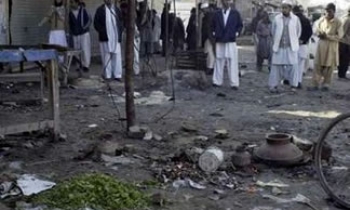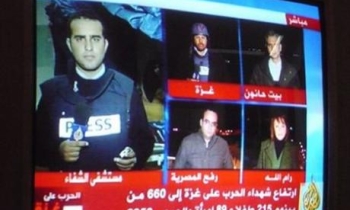In a historical move, leaders of three major international organisations have deplored the violent protests following the publication of cartoons of the prophet Mohammed in a Danish newspaper.
The joint statement from the UN, the Organization of the Islamic Conference (OIC) and the EU also urged governments to guard embassies and foreigners from attacks.
"We are deeply alarmed at the repercussions of the publication in Denmark several months ago of insulting caricatures of the prophet Mohammed and their subsequent republication by some other European newspapers and at the violent acts that have occurred in reaction to them," said the statement.
The text was endorsed by UN secretary general Kofi Annan, Ekmeleddin Ihsanoglu of the OIC and Javier Solana of the EU.
"We fully uphold the right of free speech. But we understand the deep hurt and widespread indignation felt in the muslim world. We believe freedom of the press entails responsibility and discretion, and should respect the beliefs and tenets of all religions," they said.
The EU foreign affairs chief Javier Solana is now considering travelling on a peace mission to a number of muslim countries to mediate in the conflict, according to Danish daily Berlingske Tidende.
While the US president George W. Bush on Tuesday (7 February) lent his full support to the Danish government, his Russian counterpart, Vladimir Putin, urged the Danish government to apologise.
Speaking on a visit to Spain Mr Putin said "One must think twice before printing, making, or drawing something."
"If a country is not in a position to prevent it, it must at least apologise for not being able to do so," the Russian president said and expressed the hope that muslim religious figures and muslim leaders will manage to take control of the situation.
The European Parliament president Josep Borrel issued a statement together with members of ten Mediterranean parliaments, including the Syrian, Jordanian and Lebanese houses.
The joint statement from The Euro-Mediterranean Parliamentary Assembly Bureau (EMPA) called for "responsible use of the freedom of the press and of expression" and condemned "any disrespect for religions as well as any attempt to incite religious hatred, xenophobic or racial remarks."
The use of violence against European diplomatic representations was strongly condemned in the statement.
EMPA brings together MEPs and their counterparts from ten countries around the Mediterranean (Algeria, Morocco, Tunisia, Egypt, Israel, Jordan, the Palestinian Authority, Lebanon, Syria and Turkey) as part of the Euro-Mediterranean partnership.
Call for editor's resignation
Meanwhile Danish daily Jyllands-Posten has come under growing domestic pressure with the country’s former foreign minister Uffe Ellemann-Jensen calling for the resignation of the editor in chief.
The conflict started when Jyllands-Posten in September printed 12 cartoons depicting the prophet Mohammed in order to test the limits of European freedom of expression.
"When an editor in chief admits he has made a failure of judgment and says he would not have done what he did, had he known the consequences, then he ought to resign," Mr Ellemann writes in a comment printed in Berlingske Tidende (8 February).
Mr Ellemann described the cartoons as an adolescent tantrum and said the Danish government cannot be held responsible.
But just as all diplomatic efforts are being focused on dampening down the conflict, French satirical weekly Charlie Hebdo has added fresh fuel to the fire.
In today's edition it reprints all 12 controversial cartoons plus a new one on the front page - depicting a crying prophet burying his face in his hands and saying "it’s too hard to be loved by fools."









